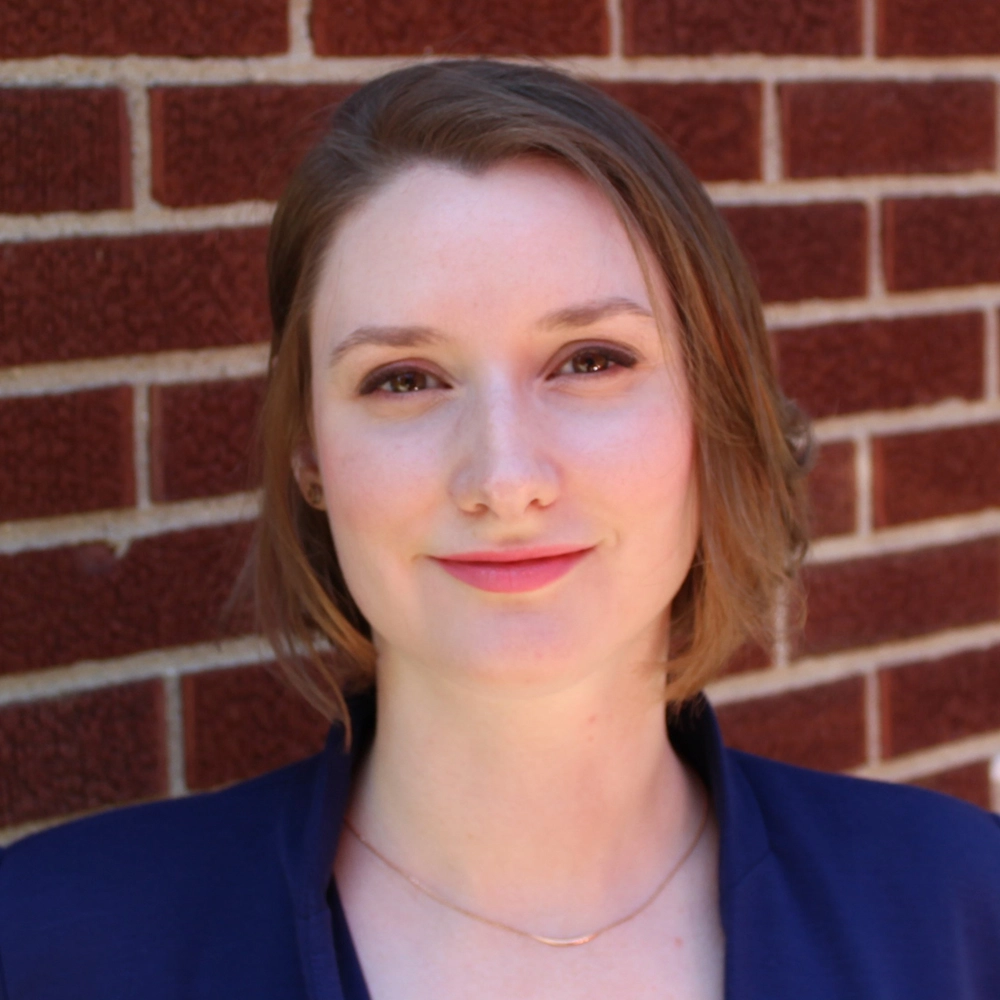
As an undergraduate in chemistry at the University of Illinois, Dr. Jeanne Hankett (BS, ’10, chemistry) found her drive for analytical chemistry working in the lab of Professor Andy Gewirth, doing investigative work on oxygen reduction reaction electrocatalysis in relation to fuel cell development.
“That really inspired my drive for analytical chemistry. Andy was a fantastic mentor and drove us to understand the fundamental chemistry behind the reactions,” said Hankett, who is now an analytical scientist at BASF, a global chemical company.
While working toward her Ph.D. at the University of Michigan, she studied surfaces and interfaces of plastics in environmental systems and did microplastics analytics in the Great Lakes as she transitioned into her post doctoral studies, eventually accepting a contract position at BASF, where she was brought onboard full-time nearly two years ago.
“What I still do today is investigative chemistry,” she said.
At the BASF facilities in Wyandotte, MI, Hankett spends about a third of her time managing the company’s Environmental Lab at Analytics North America, developing methods to analyze products that have environmental impact or are subject to environmental regulation. The rest of her time is split between the Industrial Hygiene Laboratory, conducting and developing analyses related to human health and safety for BASF workers and customers, and leading or co-leading collaborations on analytical research across the company’s global footprint.
That work spans a wide variety of topics with the goal of advancing BASF technology to improve products and processes and includes “addressing black boxes in chemistry,” as Hankett described one segment of her work, referring to areas of chemistry where there’s a lack of knowledge for various reasons.
But a lack of knowledge in another area “hit home” recently, compelling Hankett to create a non-profit scientific grant foundation, the Richard G. Hankett Memorial Grant (RGHG) Foundation.
Launched in late 2019 after two years of planning, the foundation is dedicated to supporting and advancing excellent multidisciplinary academic cancer research through crowdfunding, with particular emphasis on raising awareness and funding to fight infection-induced cancers, a common cause that is rarely discussed publicly, according to Hankett.
At the age of 15, Hankett’s father, Richard G. Hankett, passed away, and doctors at the Northwestern Memorial Hospital in Chicago said his stomach cancer was likely a result of a decade of slow tumor growth. It was later discovered this was likely caused by the bacterial infection, Helicobacter pylori.
Researchers have linked certain bacterial infections with cancer, including gastric cancer, which is the second most common cause of cancer-related fatalities globally. And the main identified cause and strongest known risk factor for that type of cancer is H. pylori, according to the National Cancer Institute. “
It was foreign to me at the time,” she said. “As a teenager, I didn’t feel like I could do much about the situation, but I kept my eye on the science.”
Over the years, Hankett learned that stomach cancer caused by H. pylori is not common in the United States, but it is more so in other countries like Mexico, where her father had likely contracted the bug during a visit while in the Army Reserves. Then, two years ago her cousin died at a young age from cancer linked to the Human Papillomavirus.
“So here again we have an infection that caused a cancer,” Hankett said, talking about her cousin. “I really felt she did everything she could, and she participated in the latest studies, and still, it wasn’t enough. That was a jarring event and jarring realization that we have a long way to go in cancer research and a long way to go for the public to understand infection.”
Hankett said nearly one in four cancers in low- and middle-income countries may be due to viral or bacterial infection, according to the World Health Organization.
After her cousin’s death, Hankett said she began thinking that she finally had the network and capabilities to take action in the scientific world and began developing her idea of creating a crowd-funded non-profit organization to support research in this area.
Now a 501c3 organization, the Richard G. Hankett Memorial Grant (RGHG) Foundation is led by Hankett and a volunteer board of directors who have been building awareness through their website and working with students and recent graduates to create science content on social media platforms ahead of their first crowd-funding campaign that begins in March.
“It’s not like I had a pile of money I was sitting on, so the crowdfunding of research model came to mind,” Hankett said.
The goal is to open the grant competition at the end of this year, and the size of grants will depend on how much is raised. With a website and a broad social media presence, Hankett said the idea is to harness the viral capabilities of online communities and keep overhead low.
She has been working with Professor Gewirth in this process, and the foundation will be highlighting the collaborative research of University of Illinois chemistry professor Doug Mitchell and his business partner Dr. Mark Burk at Lassogen Inc. on lasso peptides for disease therapeutics in their awareness-building phase. The RGHG Foundation posts monthly blogs on cancer science and research as a part of their core efforts to make scientific information more accessible.
Hankett said the fantastic mentors she had at Illinois gave her the skills to be successful in industry, to take risks and work with confidence.
“And I really attribute that to the faculty at the U of I, especially the chemistry faculty,” she said. “They were kind and supportive, but they also taught me a lot of technical and soft skills to navigate the workplace, so I am forever grateful for having that education.”